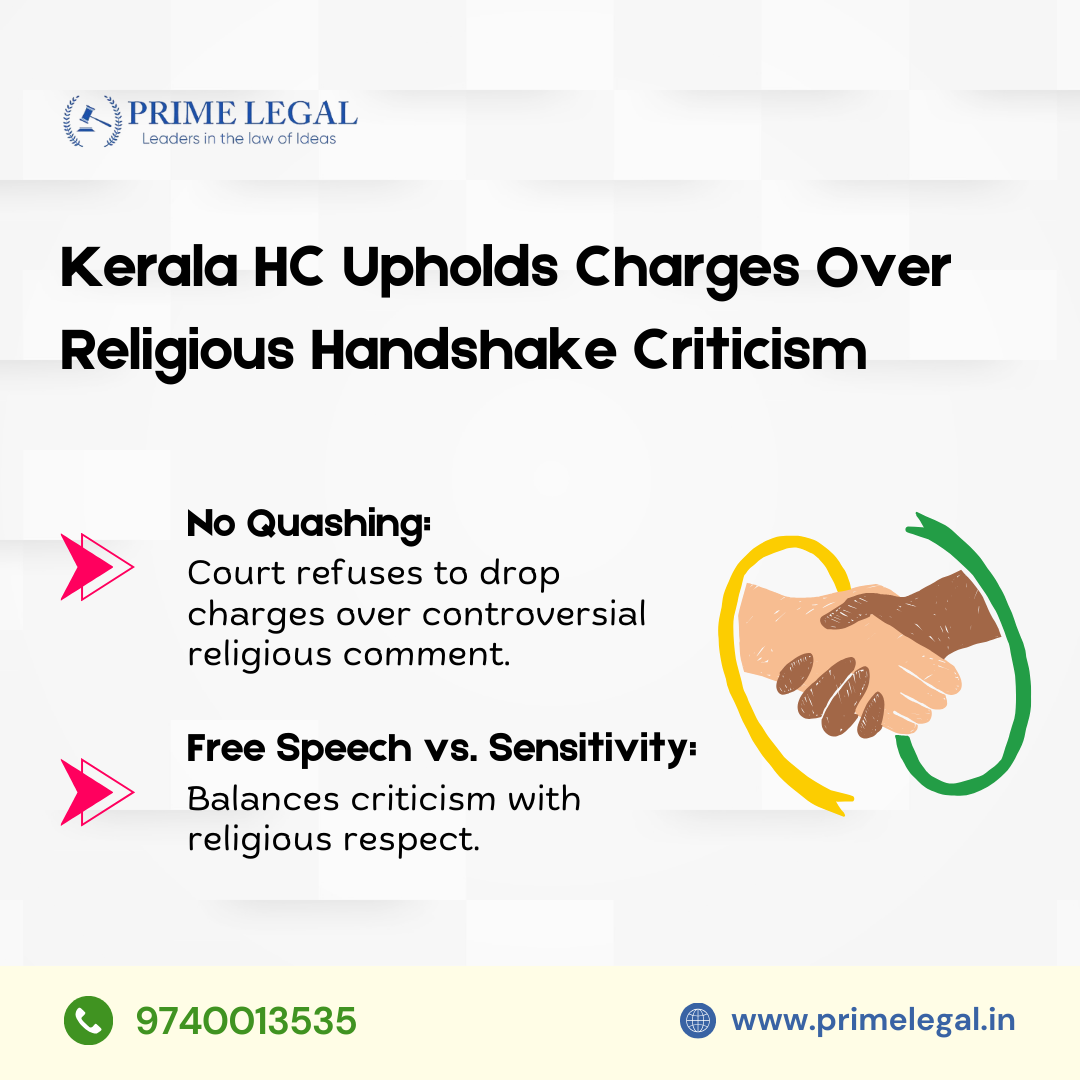INTRODUCTION
Recently, the Kerala High Court refused to set aside charges of blasphemy against the person who accused a Muslim lady of shaking his hand with a minister. This decision poses huge legal concern to Indian law on free speech, right to criticize and the intolerance of religious feeling. The judgment has raised more questions on whether it is a battle between freedom of speech, expression and religion and the law, and for this reason, it falls under the list of constitutional and socio cultures’ rights cases.
BACKGROUND
The case at issue concerns the case when a Muslim woman touched the minister’s hand while handshaking and a man complained about it using religious arguments. He came out publicly to scold the handshake saying it was forbidden by the Quran. After this, a FIR under section 153A of IPC for promoting enmity between different groups on grounds of religion and section 295A of IPC for deliberate and malicious act which is likely to outrage religious feeling was registered against him.
The accused then instructed lawyers to approach the Kerala High Court to have the charges dismissed because his remarks were a form of freedom of speech. The main issue for consideration before the court was whether or not the statements by the individual as a matter of the law fall under the definition of hate speech or whether the provisions of Article 19(1)(a) of the Constitution of India, that directs the right to freedom of speech and expression prevailed.
KEY ASPECTS
Freedom of Speech vs. Hate Speech: From the case of the Kerala High Court, the message stressed that freedom of speech is an obvious right but cannot be absolute. The court held that speech that calls for hatred, animosity or disquiet in society is not included in Article 19(1)(a).
Applicability of Section 153A and 295A of the IPC: The court went to analyze if the statements by the accused were covered under these sections. And insisting on the charges punishable under Sections 153A and 295A of the IPC, it held that his comments that were intended at a particular religious practice had the capacity to incite disturbance of the public tranquility and hurt religious feelings.
Context and Intent: That is why the court analysed the circumstances of making statements and the accused’s purpose. To this, the Judge said that although it’s acceptable to criticize religion in secular state, what was said, and the way it was said, were important. The court held that the language and tone used by the accused, therefore amount to an attempt to provoke, which could not be explained as criticism.
Judicial Precedents: Some of the authorities cited in the court by the court are: The judgments of the Federal Court in dissolving the Azad Hindustan Labour Parry, the judgment of the Anglo Indian members for keeping their political mouths shut and other judgments pointed out that the freedom to express one’s opinions must be bearable when checked against the responsibility to preserve peace and order in the community. It explained that utterances whose purpose is to provoke hatred or enrage religious sentiments cannot be enjoyed under the Constitution.
CONCLUSION
The right of free speech versus public order and religious sentiments have been brought to the lime light by Kerala High Court permitting the legal proceedings against the man’s adverse comment on the religious handshake. In essence, the failure by the court to discharge the charges as curves free speech responsibilities and require them to be exercised responsibly and responsibly especially in multi- religious nation like India. The case also brings out the fact that even as freedom to criticize religions and practices are allowed Section 295A of the Indian Penal Code prohibits anyone from injuring or defiling a place of worship or an object held sacred by any class of persons.
“PRIME LEGAL is a full-service law firm that has won a National Award and has more than 20 years of experience in an array of sectors and practice areas. Prime legal falls into the category of best law firm, best lawyer, best family lawyer, best divorce lawyer, best divorce law firm, best criminal lawyer, best criminal law firm, best consumer lawyer, best civil lawyer.”
WRITTEN BY: PAYAL DEVNANI


